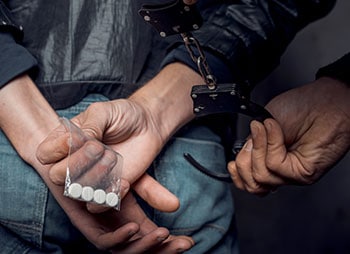
Being arrested for drug possession can be overwhelming, and it’s natural to feel confused or even fearful about what lies ahead. You may have questions about what’s next, what your rights are, and how an attorney can help. In times like this, I’m here to listen to you, respond to your concerns, and help you navigate the legal process step-by-step.
Meaningful results in drug possession cases often take time, patience, and a proactive plan. I’m here to help you understand the details of your case, the options available to you, and the best ways to protect your future.
In this article, you’ll learn the essentials of navigating a drug possession charge in Louisiana, including your rights, how to handle search requests, and the steps a dedicated defense attorney can take to help you build a strong defense.
In this article, you can discover…
The first right that you have and that you should exercise is your right to remain silent. Do not answer any questions beyond identifying yourself. Let the police know your name and provide them with identification if you have it, but do not answer further questions until your attorney is present to advise you.
You also have the right to be free from unlawful searches. Do not give your verbal consent to a search if asked. If the police feel they have probable cause to search you or your vehicle, they can do so even without a warrant or your consent.
If this happens, respectfully let the police know that you object, but do not run, resist the police, interfere with their search, or try to evade them. Doing any of these things will only lead to additional charges, which can make your case more difficult to resolve.
This depends on the circumstances, location, and background of your arrest. If you are already under arrest for something unrelated to the search itself, you may be personally searched by police for weapons or anything that could harm the arresting officer without your consent and without a warrant. This is known as a search “incident to arrest.”
If you are in your home at the time of the arrest, your home can not be searched unless the police have a warrant. If you are out in public when arrested, the police may search you without a warrant if they feel they have probable cause to do so. No matter where your arrest takes place, never give your verbal consent to a search. Your verbal agreement to be searched automatically makes a warrant unnecessary.
The Fourth Amendment protects you from unlawful searches, so never give your verbal consent to be searched if asked. Withholding consent gives your defense attorney every ability to advocate for you and helps protect your rights.

Attorney Greg Webb is a hard-working, seasoned criminal defense attorney serving Louisiana. For over 15 years, he’s helped clients just like you understand and protect their rights, navigate the legal system with compassion, and fight hard for their freedom and future following an arrest for drug possession.
Have questions, or in need of a caring, proven criminal defense attorney? Reach out to the Law Office of Greg Webb at (225) 483-0086 for an initial consultation today.
Avoiding self-incrimination is key, and the simplest way to do this is to exercise your right to remain silent. Beyond identifying yourself, do not answer police questions. Ask to be provided with a lawyer before you are questioned, and do not answer questions without your attorney present.
While anyone can go online, enter key search words, and find an attorney in Ascension Parish, it’s important to be sure that you find the best lawyer for your circumstances, charges, and unique case. To do this, you can either get referrals for a criminal defense attorney from other attorneys you trust who may not practice criminal defense.
You can also seek initial consultations with a number of attorneys and give yourself time to decide which attorney is the best fit for you. Be sure to also seek out a defense attorney with ample experience handling and successfully defending against the type of charges you are facing.
It’s not unusual to feel uncertain or fearful after an arrest—especially if substance use has been a challenge. Mistakes in these circumstances happen more often than you might think. While each situation requires a tailored approach, I have considerable experience guiding clients through these setbacks and helping them move forward.
For instance, if you missed a court date, I can often resolve this by reaching out to the judge, requesting to recall the bench warrant, and arranging a new court date. In cases where a failed drug test is the issue, a temporary remand may be unavoidable, but a proactive solution could involve entering a new treatment program and advocating for that as an alternative to jail time.
If the situation involves additional charges or the risk of bond revocation, we might explore transferring your case to a drug court to help you avoid jail. Every case is unique, and in some situations, it’s necessary to argue for extenuating circumstances in court. My goal is to help the judge understand the full context of your situation.
Throughout the process, I will stay in close communication with you, meet with you regularly, and make sure I fully understand what happened and why. Together, we’ll create a plan to get back on track.
For more information on What To Do After You’re Arrested For Drug Possession In Louisiana, an initial consultation is your next best step. Get the information and legal answers you are seeking by calling (225) 483-0086 today.

Attorney Greg Webb is a hard-working, seasoned criminal defense attorney serving Louisiana. For over 15 years, he’s helped clients just like you understand and protect their rights, navigate the legal system with compassion, and fight hard for their freedom and future following an arrest for drug possession.
Have questions, or in need of a caring, proven criminal defense attorney? Reach out to the Law Office of Greg Webb at (225) 483-0086 for an initial consultation today.